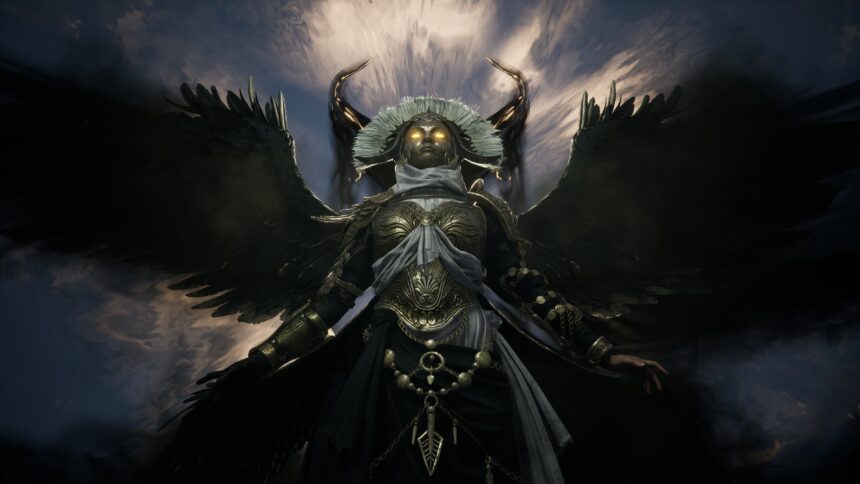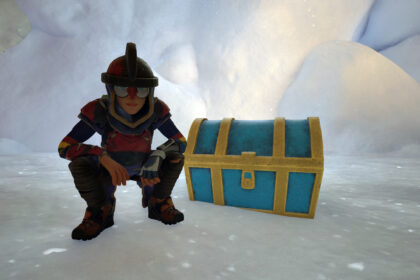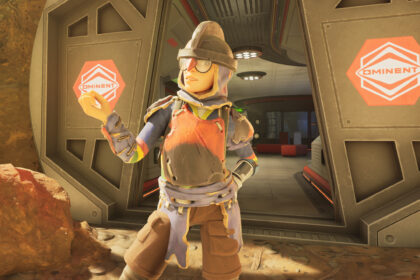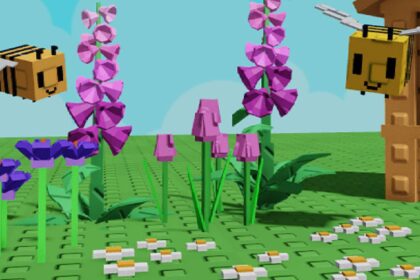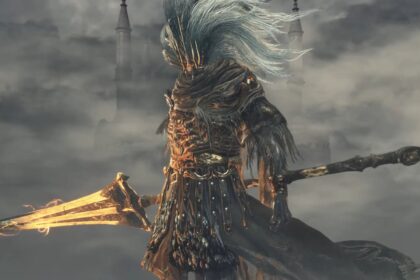The Spartans have annoyed Nemesis, the Greek goddess of retribution, and now the ancient world is filled with monsters and undead. Unfortunately, this demonic deity is after your head, too. No need to stress, though: Titan Quest 2 (the sequel to 2006’s mythological ARPG) is a pretty chill time, and it just snuck out in early access today.
It might be considerably prettier than its predecessor—with the caveat that it’s visually a touch conservative—but stepping into the sandals of my Greek hero felt like travelling back in time to a simpler era, when you could enjoy an ARPG without intense number crunching, theorycrafting or engaging in live service systems.
You whack monsters. Or stab them. Or turn them to ash with a lightning bolt. Then you snatch your rewards and maybe level up, where you can drip points into a flexible but simple skill system. And then you just keep doing it.
At a time when ARPGs are getting more complex and life-consuming, Titan Quest 2 is a weird novelty, eschewing the hugely elaborate skill trees of Path of Exile and Last Epoch, the MMO structure of Lost Ark, or the billions of currencies and MTX nonsense that most ARPGs are drowning in.
Even its most noteworthy feature feels subdued compared to the competition. Like the first Titan Quest, you create your own class by combining two different masteries. At the moment, you can mess around with Earth, Storm, Warfare and Rogue masteries, mixing and matching the skills contained within them.
Split personality
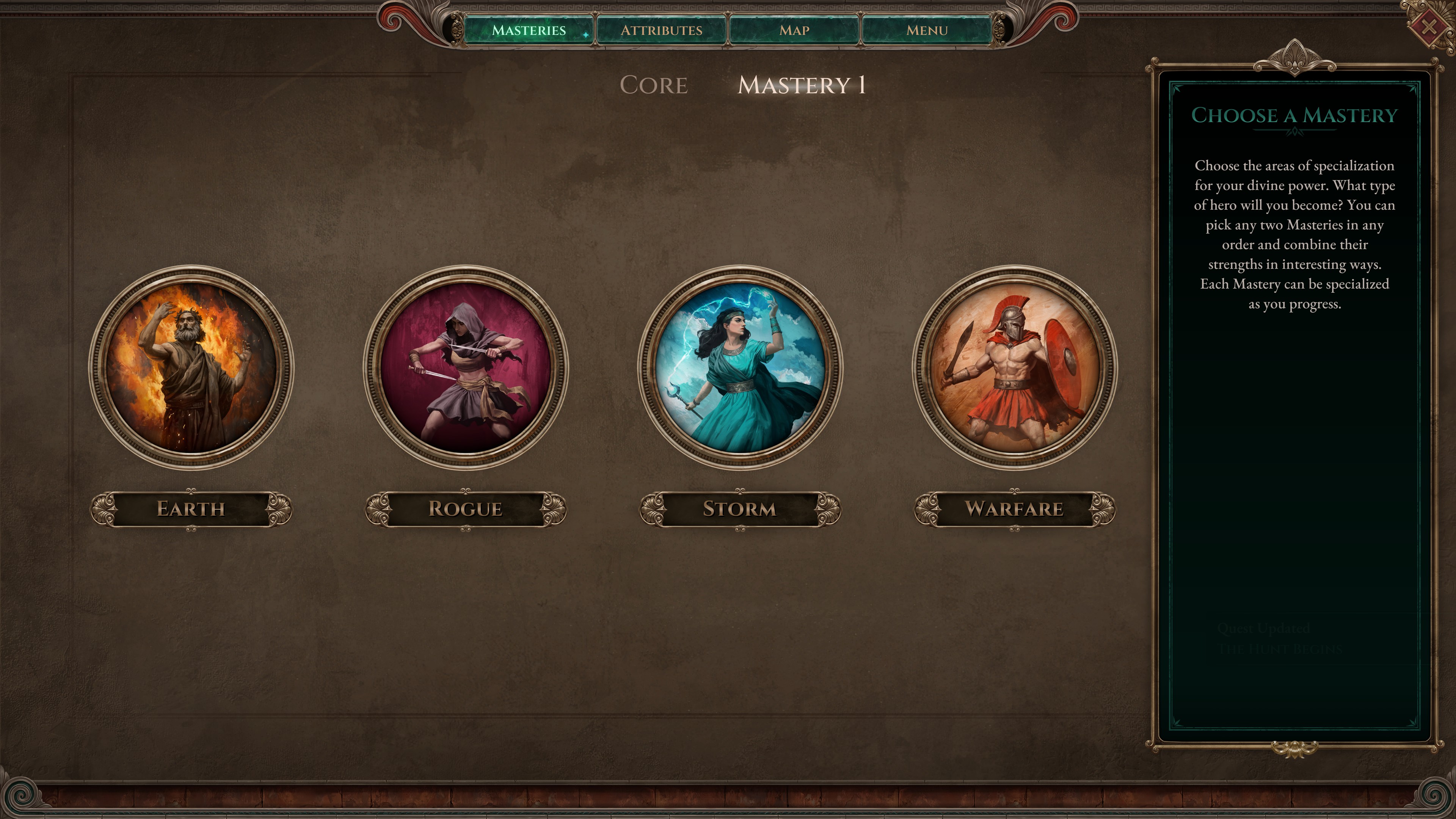
There’s one wrinkle that the sequel throws into the mix, though: each skill can be augmented with modifiers when you level it up. This is something we’ve already seen in other ARPGs, however, including Diablo 4, though I should add that there’s a decent number of modifiers, some of which dramatically change the skills they interact with.
Fissure, for instance, is a magical attack in the Earth mastery, but since I decided to build a melee fighter-style hero, I picked the modifier that turned Fissure into a melee attack, where I use my weapon to create a huge crack in the ground—a crack filled with lava, thanks to another modifier I picked.
Character building isn’t brain dead, then, even though it’s considerably more straightforward than what I’ve become used to. And with only two passive points and two active points per level, split between two masteries and your core abilities (your basic attack, a dodge and a magical shield) it does maintain the ARPG friction that comes from being forced to prioritise your power fantasies.
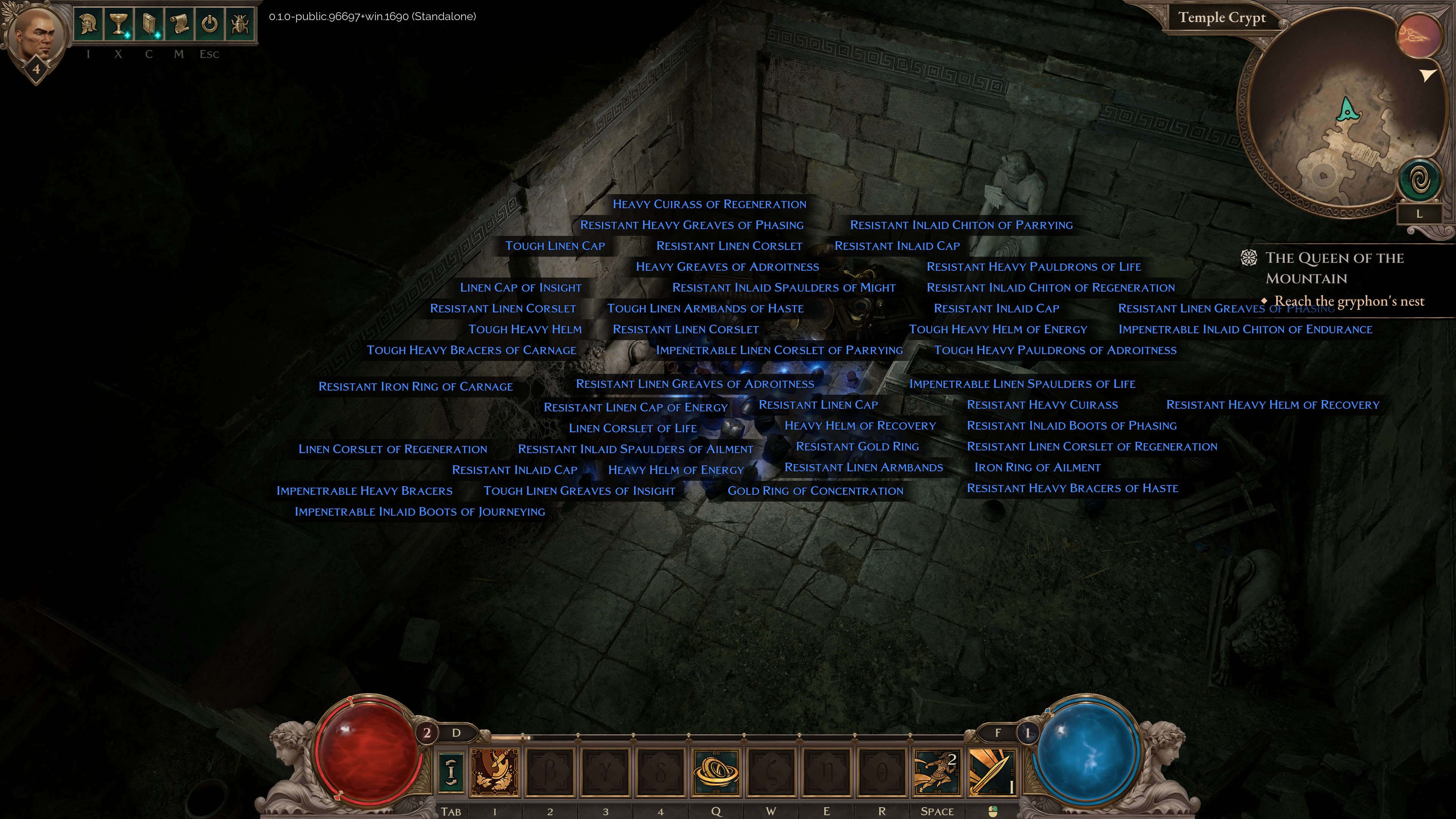
It could be a nice break from the more involved ARPGs that demand so much attention, but I confess that at first I found myself trying to enjoy it, rather than actually doing so. My brain’s just too warped: I need the complexity now.
Slowly growing my list of skills, most of which are pretty conventional—fireballs, lightning strikes, heavy attacks—just wasn’t sparking joy. And while combat isn’t floaty, it can sometimes feel like it is. Attacks have weight, enemies react accordingly, but there’s just something ever so slightly off. There’s an occasional lack of precision, with enemy melee attacks hitting you when it seems like they shouldn’t. The combat sound effects contribute to this, too, especially the basic attack, where the timing of the sound effect just isn’t quite right.
Titan Quest 2’s first impression isn’t helped by the fact that the entire first region is almost entirely populated by angry crabs, which I don’t exactly associate with Greek mythology. It’s like 90% crabs, and only two varieties of them.
Ganging up
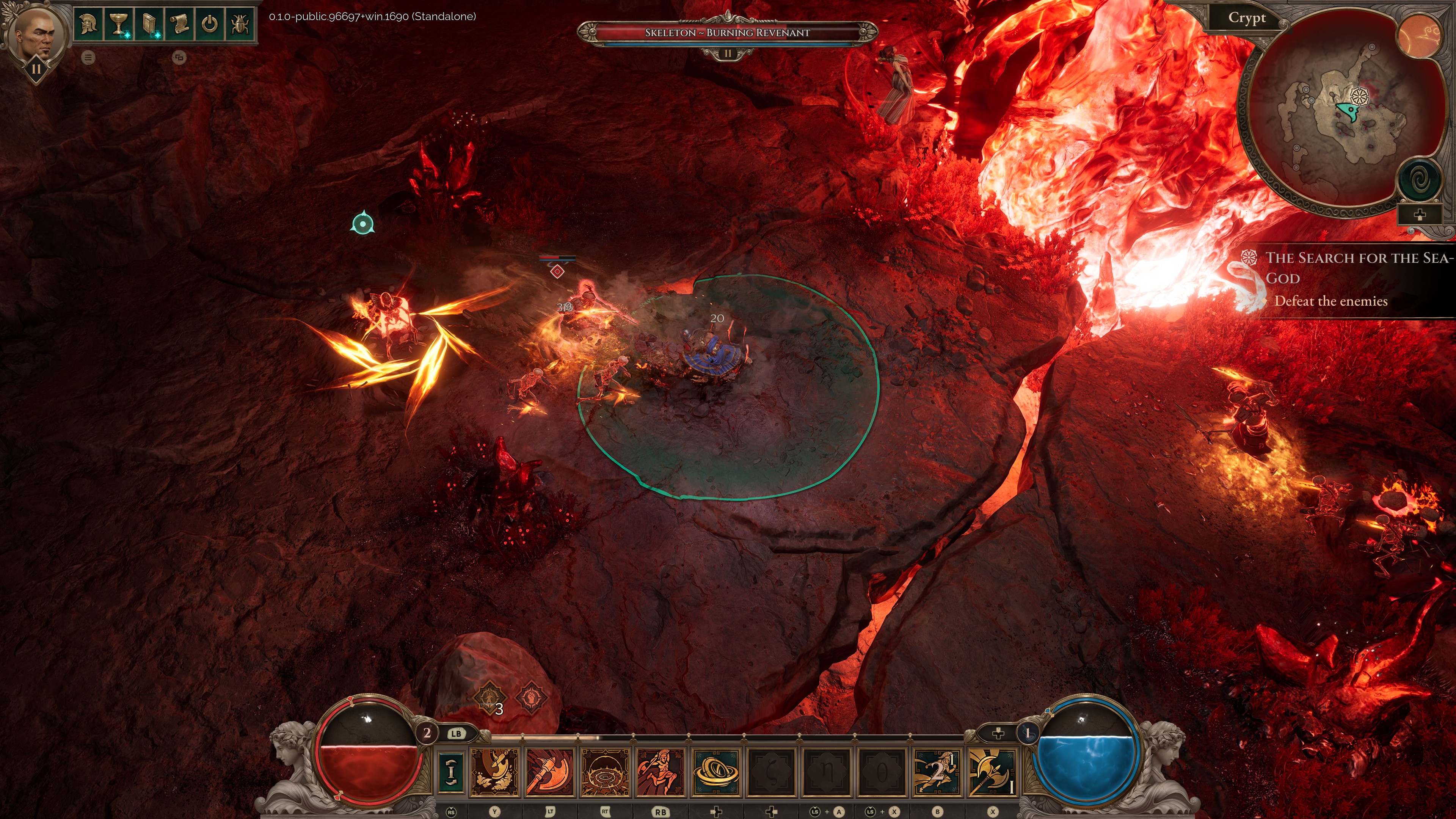
After a couple of hours, though, things started to look up, as Titan Quest 2 began to throw a greater variety of pesky foes at me all at once—cowardly magic users who hung back to annoy me from afar, tanky beefcakes trying to distract me from their weaker pals, enemies who could interrupt and stun. Basic stuff, true, but working together in tandem they created encounters that were engaging, and occasionally pretty challenging.
Titan Quest 2’s faction system wasn’t immediately obvious at first, but it did start to wind up as I got deeper into the second area, and that’s when I started to witness welcome, and sometimes fatal, surprises. See, enemies will form factions and work together, doing more than simply charging at you in the hopes of a quick kill.
The first time I witnessed some proper teamwork was when I was crushing some crabs for the millionth time—your war with them will continue even after you leave the first region. I’d murdered most of them, when two survivors simply turned around and scurried away. I’d never seen any enemies retreat before. I gave chase, only to be drawn into an ambush, where half a dozen fishy lads ran at me as the ranged crab king spat out liquid that I hoped was just water from behind them.
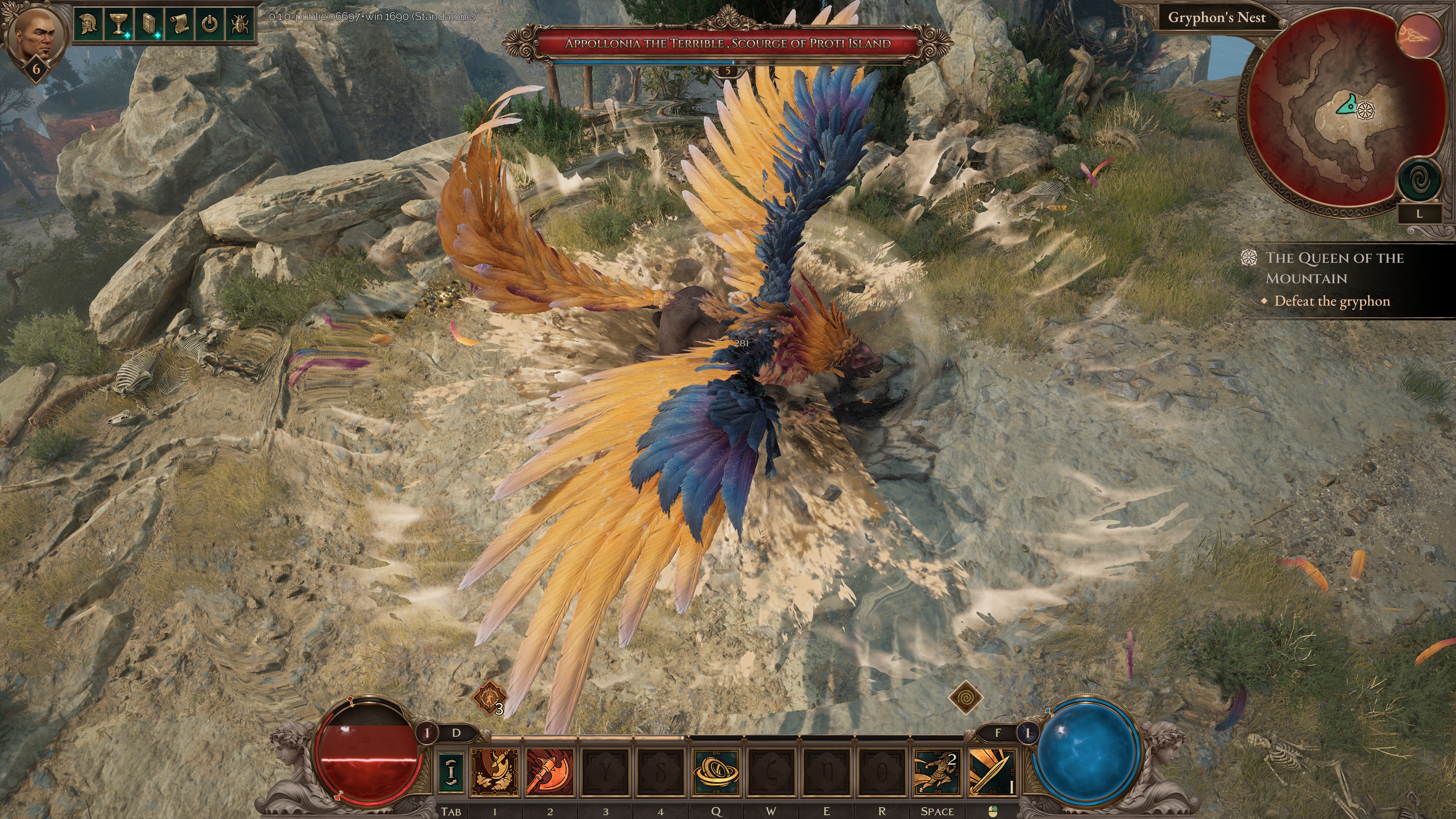
Soon after, I found some giant bats going bonkers in a ruin, and as I entered they started swirling around me, swooping in to give me some nasty nips. I’m a big fan of bats and would prefer not to kill them, and it turned out that I didn’t actually need to. They were only aggressive because two fish-men were also in the ruin, and they were slamming their shields to create a cacophony that made the bats incensed. Once I killed these noisy lads, the bats immediately chilled out.
I’m used to ARPGs using numbers and power to overwhelm me, but Titan Quest 2’s horrible creatures actually use tactics. Not necessarily complex tactics—but this glimmer of intelligence makes all the difference.
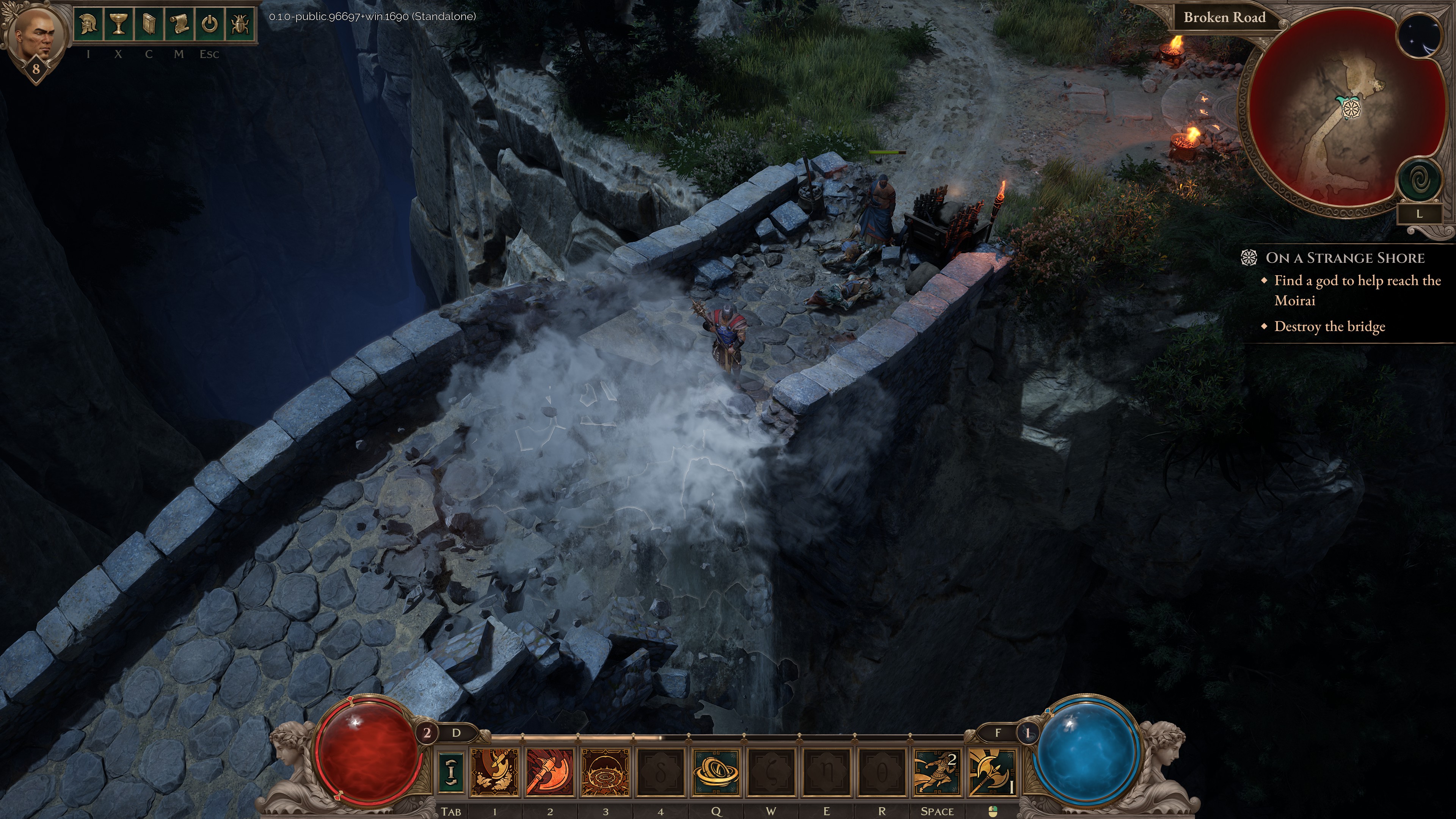
Now I’m starting to really enjoy my trip to sunny Greece. Surprises are few and far between, but there’s an abundance and pleasing variety of quests; maps full of hidden treasures and plenty of nooks and crannies to explore; and enough skill combos to dig into so that you should have plenty of build concepts to experiment with. And if, like me, you find the challenge posed by the ancient world’s monsters a little on the easy side, you can always pray to Ares to increase the difficulty.
Developer Grimlore Games—previously behind SpellForce 3—is going to be doling out “major updates” every three months during early access, which will include things like proper character customisation and a transmog system, but one thing it won’t be adding is microtransactions. We might be getting DLC and expansions, but the base game is a ‘buy it and you get everything’ deal. What a novel idea.
Read the full article here



